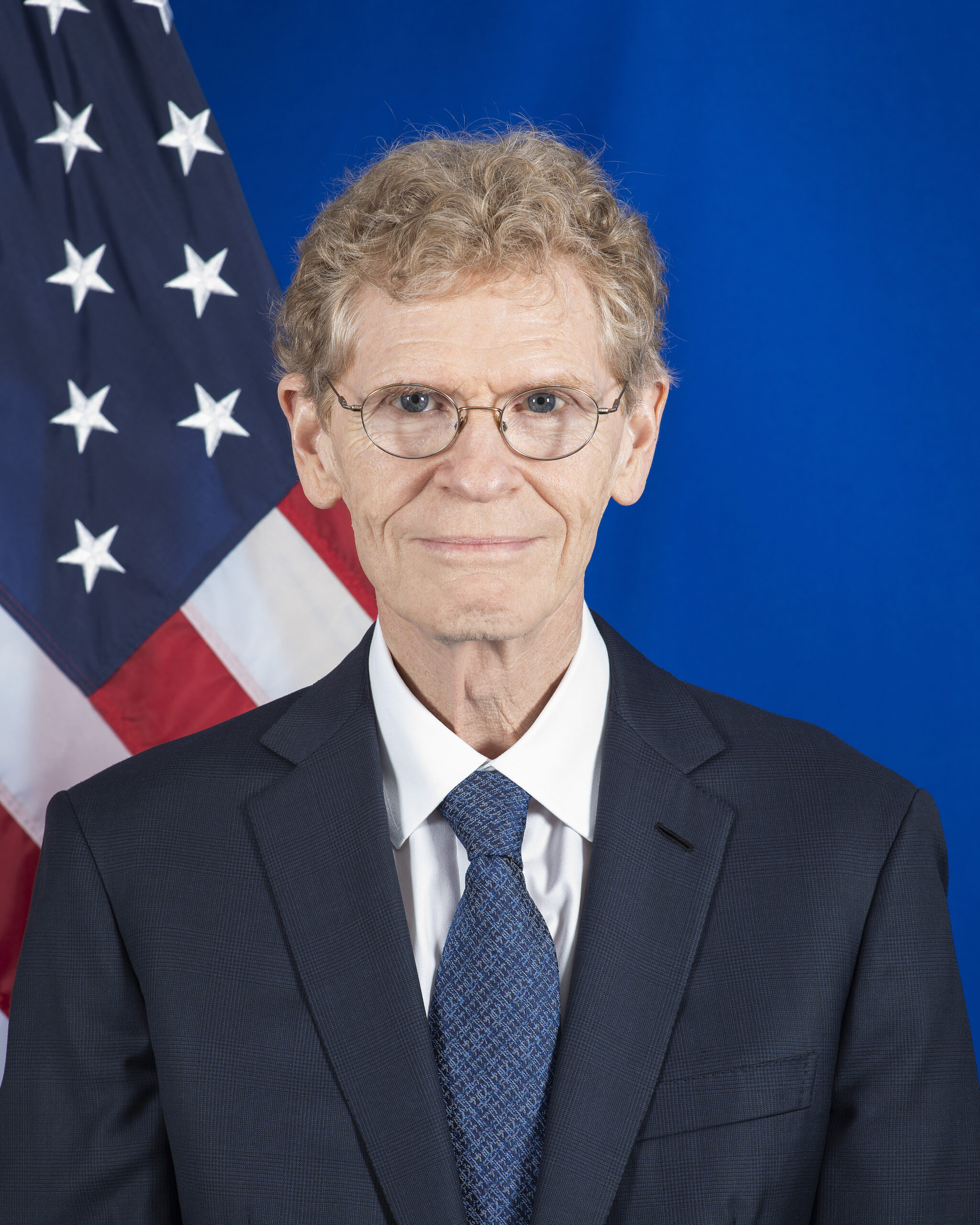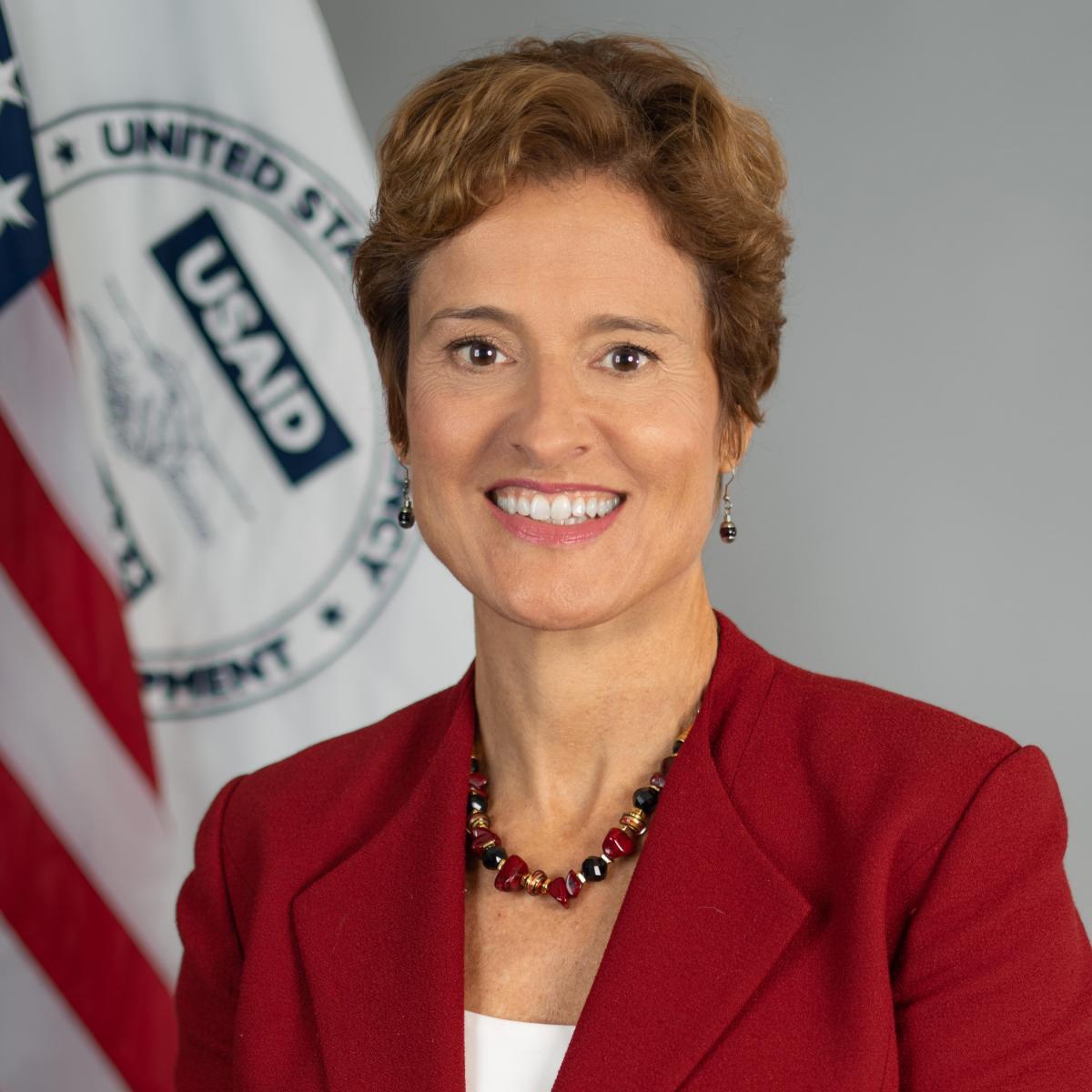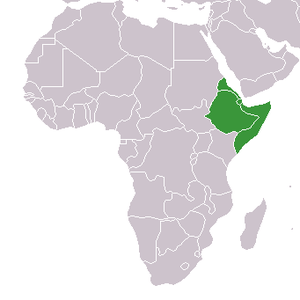
이번에는 좀 색다른 브리핑을 소개드릴까 합니다.
최근 물가가 많이 올랐고 그중의 주요한 이유는 식량과 연관되어 있습니다. 그것에 대해서 제목에 적은 두 인물과 기타 인물들이 원격회의를 한 내용들입니다.
한계효용 체감의 법칙에 의해서 소득이 적은 개인일 수록 경제위기속에서 더 많이 타격을 입고, 국가도 마찬가지로 그 경제적 수준이 낮을수록 국제적 위기상황에 더 많이 타격을 입습니다. 경제적 역량이 많은 사람들은 필수적이지 않은 소비를 줄여서 필수적 소비(의, 식, 주)에 소요되는 비용을 충당할 수 있지만, 그렇지 못한 사람들은 기존의 필수적 소비조차 줄여서 삶이 더 비참해지니 말입니다.
언제나 그렇듯이 번역에 태클걸어주시면 오히려 대환영입니다!
(사실 태클걸리길 바랄 지경입니다. 그래야 생산적일테니까요.)
-


* 분량상 생략한 부분들이 있습니다.
MODERATOR: Thank you, Special Envoy Fowler and Coordinator Esposito. We will now begin the question-and-answer portion of today’s briefing. To start off, I’d like to ask Dr. Fowler, what is the context of global food insecurity today? Can you share what you have seen and learned from your trip thus far in Africa and from the conversations you have had with farmers and experts from the agricultural and nutrition sectors?
---> 오늘날 세계적인 식량 불안정성에 대한 개괄을 묻고 있습니다.
MR FOWLER: Sure. Well, one thing that we learned last year is that there are multiple food systems in the world. We talk about the global food system, but in fact food systems are also local and they’re different; there’s a diversity of those. And we learned that in some ways, all of them are precarious. So what happens in the Ukraine, for example, has ripple effects throughout the world, but those ripple effects can be quite different.
---> 한마디로 요약하자면 식량이슈에 관련된 사건들은 파급효과를 가지고 있고, 그 파급효과는 각 국가들에게 각각 다르게 영향을 끼칠 수 있다는 겁니다.
Last year we spoke about the chief drivers of the global food crisis as being climate change, COVID, and conflict. We have to recognize that today, in 2023, we still have climate change, COVID, and conflict, but we also have low stockpiles of grain, we have market disruptions, we have the issues that are being caused by Russia’s aggression in the Ukraine which is of course limiting the grain exports of that country, which is one of the top five exporters.
---> 그리고 2023년의 식량 불안정성의 원인을 꼽자면 다음과 같다고 합니다. 1) 기후변화 2) 코로나19 3) 낮은 곡물 저장고 4) 시장 교란행위 5) 러시아의 우크라이나 공격으로 인해 제한되고 있는 곡물 수출.
So as much as I wish I could bring the hopeful message that the food crisis will be over this year, we have to recognize that the chief drivers of the food crisis are still with us. And it behooves us, therefore, to be looking at solutions for all of those, or adaptive measures. That’s the situation as I see it today.
---> 일단은 오늘날 존재하는 식량위기의 주요 원인들을 인지해내야 근본적인 처방이든 일시적인 대처이든 뭔가 해결책을 찾아낼 수 있을 것이라는게 Folwer 특별대표의 말이었습니다.
Our visit in Zambia and Malawi, however, I think has – even though both of these countries have huge challenges, the situation still in some ways is hopeful. We’ve seen some amazing – we’ve met some amazing people here struggling very hard to overcome the challenges that they face, and that’s been quite invigorating to us.
---> 이 원격회의의 주요한 주제는 잠비아와 말라위의 식량위기에 대한 의논이기도 합니다. 그래서 잠비아와 말라위의 이야기가 많이 나올 것입니다.
---> 말라위는 작년 11월에 식량가격 상승으로 인한 위기로 인해 IMF의 경제지원을 승인받았을 정도입니다.
https://www.voanews.com/a/malawi-gets-imf-funding-to-mitigate-food-shortage-impact/6845587.html
MODERATOR: Thank you for that. For our next question, I’d like to go to Ms. Margaret Nankinga of Vision Group, Uganda: “What is the United States doing to ensure that subsistence farmers, who produce over 70 percent of Africa’s food, get knowledge about climatic changes, soil resuscitation, improved seeds, and modern farming methods – knowledge which is so critical to improve yields and fighting hunger?”
---> 미합중국은 아프리카의 식량 70% 이상을 생산하고 있는 전업 농부들을 위해 무엇을 하고 있느냐, 기후위기, 현대적 농업기법 등등의 지식들이 농경지를 향상시키고 기아와 싸우는데 중대한 것이냐는 질문이 나왔습니다.
MR FOWLER: Thanks for that question; it’s an important one, because the U.S. Government does recognize that the majority of food in Africa is produced by smallholders, and the United States is focused on helping those farmers improve their livelihoods and their production.
---> 당연히 미국 정부는 이러한 농부들의 삶과 생산활동을 지원한다는 대답이 돌아왔습니다.
Maybe I could also say a few words about what we’re doing in the fertilizer and soil fertility area, because one of the things that you hear a lot these days is that Africa needs fertilizers. And that’s certainly true. Africa only consumes about three to four percent of the fertilizer in the world. But the context is very complicated, and one has to realize that probably the highest-priced fertilizers in the world are in Africa. Why is that the case? Well, it’s the case because they’re farthest away from some of the manufacturing, and certainly for the mineral fertilizers there’s a transportation cost, and because fuel prices are so high these days, the transportation costs are great, and because nitrogen fertilizer is based primarily on natural gas, those – that cost is also great.
---> 하지만 아프리카의 기아를 해소시키는 것에는 복잡한 난관들이 있다는 점도 말하고 있습니다. 예를 들면 질소비료가 그러하다는 겁니다. 아프리카는 전세계에서 불과 3~4%의 비료만을 소모하지만 세계에서 가장 비싸게 비료를 획득하는 지역이라는 겁니다.
---> 그렇다면 아프리카의 비료가격이 왜 그토록 비싼가. 1) 비료의 생산지로부터 멀리 떨어져 있기 때문에 운송료가 들어간다. 그런데 최근 연료가격이 상승하여 운송료가 더욱 비싸졌다. 2) 질소비료의 주요한 원료는 천연가스이다(steam reforming 공정). 천연가스 가격도 최근에 많이 상승하였다.
But if you can’t overcome that problem, which – immediately or in the short term, which is a difficult one to overcome, because the fertilizer price is high, and yet the price that the farmer is going to receive in the marketplace is low, and therefore it’s not always cost-effective, what do you do? I think long term, you start with some soil mapping work to understand what soils you’re really dealing with and what fertilizers and how much are really needed. But you also begin to rotate your crops and enrich the soil.
---> 그리고 비료가격은 올라도 농부들이 시장에서 받는 가격은 여전히 낮아서 경작인들의 어려움을 가중시킨다. 이에 Fowler 특별대표는 일단은 윤작을 해가며 토양의 질소량을 늘릴 것을 권고하고 있습니다.
We saw just this afternoon a young farmer – I think she was 23 years old, quite an amazing, determined young woman – who was rotating her maize crop with a crop of soybeans. And she had planted soybeans before, but with a variety that wasn’t so great, save seed, I have to say. And she mentioned that in the past she had gotten a harvest of about two bags for her – the area she was farming, and each bag was about 50 kilos. We asked her what she expected with this harvest, and I think she said 14 or 16 bags; in other words, just a dramatic improvement. And I thought to myself as I left that field that, wow, that is not just a dramatic income in this young woman’s income, but it will also benefit the maize crop that she plants next year because the soybeans are going to leave behind nitrogen and they’re going to enrich the soil and begin to change the soil structure, so this becomes a virtuous cycle. When we ask her what her hope was and what she would do with this extra money, she said “business.” In other words, she’s seen that she really wants to create a life for herself on this farm, and it involves using the best and most appropriate technologies for her.
---> 콩을 윤작해가며 토양을 관리하는 젊은 농부의 사례를 설명해주는 부분. 콩을 재배하면 대기의 질소가 토지에 고정되어 다른 작물도 키울 수 있게 됩니다.
So one of the things that this project that USAID is supporting here will be to offer those technologies as options, where the – not to force farmers into any straightjacket, but to offer options that the farmers can see and choose from to improve their farming practices and their livelihoods.
---> 이러한 맥락에서 USAID는 해당지역 농부들에게 강제는 하지 않으나 위에서 소개된 기법 등을 선택지로 제공해줄 것이라고 하네요.
MS ESPOSITO: I would just add one or two things to that, Cary. I think the interesting thing about her fourfold yield increase was that it was an improved seed that was developed through USAID investments over a multiyear period to figure out what grows well here and get those seeds out to farmers. This project – the supplemental monies that the U.S. Congress provided in response to the global food crisis – they provided $5 or $6 billion in humanitarian assistance, but also $760 million in development assistance, and we indicated that we could use our development portfolio to mitigate the worst impacts of the food crisis.
And this woman’s experience – she planted only six weeks ago and she’s got a really positive-looking crop – she’s going to have that crop very soon, and it’s going to be an example of the crop protection we had in mind when we said we could use development dollars to mitigate the worst effects of the crisis. It’s an example of accelerating innovation in the face of crisis by giving her improved seed, and she will be able to sustain access to that – those seeds through the commercial actors that we’re working with. And so the supplemental resources we were able to put to immediate effect to really offset some of the worst impacts here in the region, and that’s exactly some of the activities. And we’re looking at a variety of these activities, but how do you use development dollars to drive systemic change in the face of crisis – not just humanitarian dollars, which are vital, but don’t have that systems change focus that we can do with additional development dollars?
---> 여기에 USAID 식량위기 조정관 esposito는 미 의회에서 승인해준 원조자금들을 단순한 구호자금이 아니라, 식량 위기의 영향을 감쇄시켜주는 체계적 변화로 이끌 방법들을 모색하고 있다고 밝혔습니다.
QUESTION: Yes, thank you for doing this and thank you for taking my question on this. Simon Ateba with Today News Africa in Washington. I was wondering if you could give us an update on food insecurity in the Horn of Africa. I know you didn’t go there, but if you could give us an update in the food insecurity in the Horn of Africa? We know that the region has been the most affected by drought and the war and blockade around Tigray region in northern Ethiopia. How much – how much help will the U.S. provide them in 2023? Thank you.
---> '아프리카의 뿔'로 불리는 지역의 식량 불안정성에 대한 질문입니다. 본문에 나온대로 이 지역에서는 고질적인 가뭄에 더하여, 에티오피아는 2년간의 내전으로 인해 북부의 티그라이 지역은 차량의 통행과 인터넷까지 차단되었습니다.

https://www.newspenguin.com/news/articleView.html?idxno=11426
https://www.hani.co.kr/arti/international/international_general/1069187.html
MS ESPOSITO: Thanks for that question. You’re right, the Horn of Africa is probably one of the greatest – it is the greatest humanitarian emergency in the world right now. You’ve got some 20 million people in urgent need of lifesaving assistance across Ethiopia, Kenya, and Somalia with famine conditions – really catastrophic conditions in Somalia.
---> 기근(famine)과 재앙적인 상황(catastrophic conditions).
And the United States – we’ve provided more than $2.5 billion to the Horn of Africa drought response. This includes emergency food aid, and to stave off the worst effects of famine. I’m understanding that we have been successful in Somalia now, perhaps turning the corner, we can hope, but not seeing a formal famine declaration there because of the sizeable contributions of the United States and some others. We’ve done a lot of nutritional support to – to address wasting, to prevent and treat skyrocketing child malnutrition. We’re doing a lot of the resilience building – farmer and agricultural support to prevent crop losses and keep livestock healthy; health support and access to clean water to prevent disease outbreaks; and support to protect women and children from the higher risks of violence that come when communities are stressed.
---> 이에 미합중국은 기근에 대응하기 위해 25억 달러 상당의 구호조치들을 아프리카의 뿔에 제공하였다는 내용.
Altogether we’re reaching about 11 million people in the region each month with food, nutrition, health, water, sanitation, and protection assistance, but I would note that there are still really significant shortfalls. The United States cannot do it alone. There is always – there is more need, and we’ve really been calling on others to join us. We’ve had some recent success in that regard, but certainly more can be done, and I don’t want to underestimate the gravity of the situation or to suggest that the crisis is fully passed. We know that there’s potential for another drought in the – or fifth or sixth failed rainy season in that region right now. It’s something we’re watching very closely and giving a lot of attention to. It’s really a top priority for us.
---> 그리고 미국은 해당지역을 계속 주시하고 있다는 내용.
MR FOWLER: And I’ll just add one thing to that, and that is that grain from Ukraine has historically gone to that region, and we’re seeing a real slowdown in the shipments of grain out of Ukraine due to the, I would say, intransigence of Russia in inspecting the incoming ships and delaying the outgoing ships there. When we first were able to secure the Russian – the – I’m sorry – the Black Sea agreement, we were seeing about ten ships go out a day. Now, it’s down to two or three. And we have something like 80 ships waiting to get into Ukraine to be loaded up with grain to go out. This adds to the problem, doesn’t help it at all, and is one of the issues that we’re going to be dealing with.
---> 그리고 우크라이나 전쟁으로 인한 영향도 언급되고 있습니다. 본래 우크라이나의 곡물이 아프리카의 뿔로 가는데, 현재는 러시아와의 협정에도 불구하고 기다리는 상선은 많은데 실제 흑해를 통과해 온 상선들이 점차 줄어들고 있다고 말입니다.
MR FOWLER: And I know we’ve reached the end of our time, but I just want to add one thing, and that is if you look long term at the kind of challenges that Africa faces, particularly in an age of climate change, you have to realize that one of the prerequisites for food security in Africa is to have crops that are adapted to that climate change. One of the things we at the State Department hope to be doing is – this year – is catalyzing a process which will lead to a fairly dramatic effort to adapt in traditional and indigenous African crops, the crops most important – well, particular crops most important for nutrition in Africa to the challenges of climate change.
---> 그리고 장기적으로 아프리카 지역에서의 식량문제는 기후변화의 영향을 뺴놓을 수가 없다고 하면서, 아프리카의 식량안보를 위해선 기후변화에 적응하는 작물들을 재배할 필요가 있다는 말도 첨언되었습니다.
MODERATOR: All right, thank you very much to our two guests and to our journalists. I wanted to ask our two speakers if they had any final words that they didn’t get around to in the Q&A section.
MS ESPOSITO: All good here. Thank you.
MR FOWLER: And with me. Thank you very much.
-